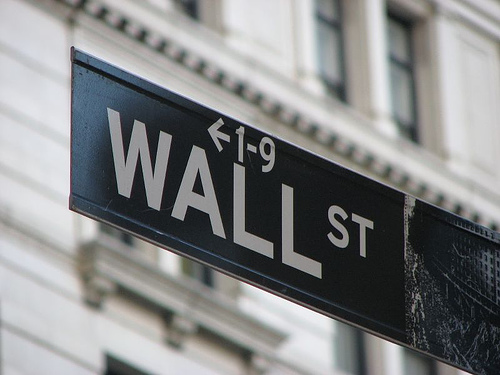 Under the current state of the Manhattan luxury rentals market, more and more investors are taking advantage of the prosperous opportunities and becoming landlords. And when it comes to savviness in investment opportunities, few sectors are as synonymous as Wall Street. According to the Wall Street Journal, several Wall Street firms have been bidding and successfully purchasing foreclosed properties and with the plans of converting them into short-term rentals. While many of these up-and-coming rentals may not come with concierge service or a rooftop terrace, the revenues they generate have the potentials to support and expand new residential developments in Manhattan.
Under the current state of the Manhattan luxury rentals market, more and more investors are taking advantage of the prosperous opportunities and becoming landlords. And when it comes to savviness in investment opportunities, few sectors are as synonymous as Wall Street. According to the Wall Street Journal, several Wall Street firms have been bidding and successfully purchasing foreclosed properties and with the plans of converting them into short-term rentals. While many of these up-and-coming rentals may not come with concierge service or a rooftop terrace, the revenues they generate have the potentials to support and expand new residential developments in Manhattan.
At the end-of-the 2011 market, Fannie Mae and Freddie Mac owned approximately $14.7 billion or over half of the foreclosed properties inventory in the U.S.. In order to reduce the number of properties sitting idly on the market, Fannie Mae has been auctioning the properties in bulk to attract larger and bolder investors. For investors, this new way of purchasing has translated to bigger discounts and larger initial costs. Analysts predict that bulk auctioning could set a precedence for federal agencies and banks to purchase more properties and aid the housing-market recovery.
As Luxury Rentals Manhattan has previously explored, the Manhattan rentals market is stronger than ever. From the Sheffield 57 to new construction around the High Line Park in West Chelsea, renting an apartment in Manhattan has never been a more attractive option. And this is exactly the attitude that many Wall Street firms are counting on. Firms like the Austin, Texas-based dealer Amherst Securities Group, Hedge-fund manager Paulson & Co. and private-equity investors Colony Capital LLC have been assertively bidding on foreclosed properties. Their goal is to open the properties up as short-term rentals over the next two to three years and re-release them for sales once the market has re-stabilized. According to one estimates by Goldman Sachs, the current nationwide annual yield on rental property investments is around 6.3%. The investments that these Wall Street firms are willing to commit to now could very well return a sizable profits once the market stabilizes, even if the properties continue to stay as rentals.





